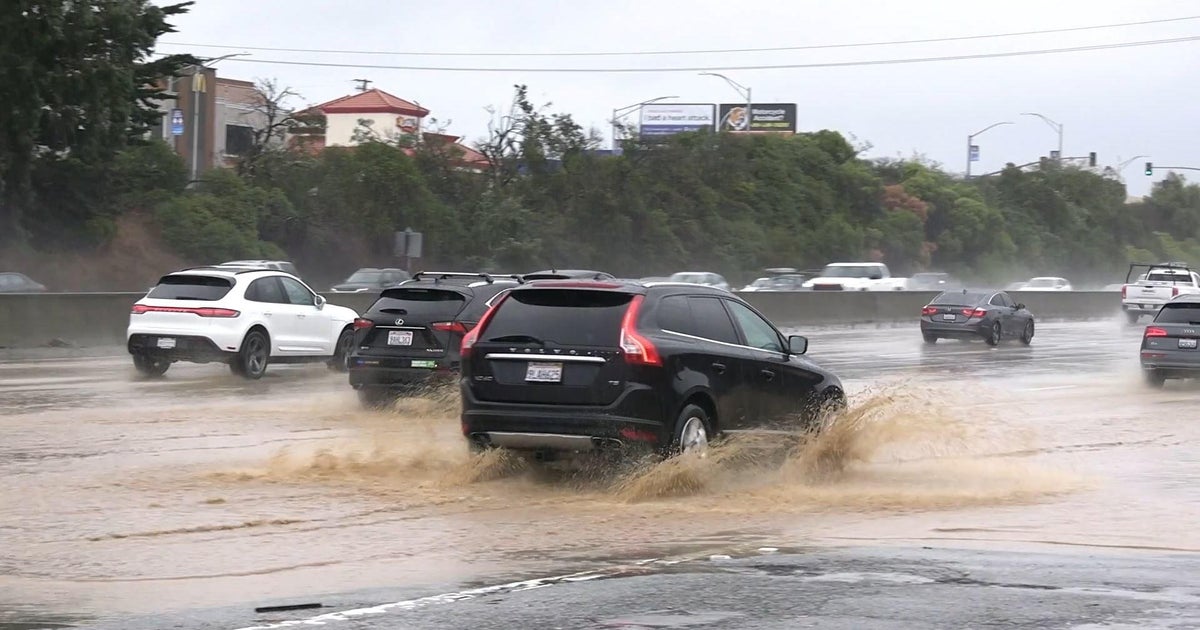Army Of Contact-Tracing Workers Being Recruited To Help Combat Coronavirus Pandemic
by Maria Medina and Abigail Sterling
SAN FRANCISCO (KPIX) -- Experts say contact tracing is going to play a critical role in fighting the coronavirus. It's been practiced for decades, used to fight SARS, Ebola and AIDS, but never on as big a scale.
Technology is sure to play an ever-growing role in contact tracing. But for COVID-19, it's starting off the old fashioned way, person to person and boots on the ground.
When the pandemic made Robin Fletcher's sales job grind to a halt, she jumped at an opportunity to use her people skills for something more meaningful.
"We really need to think about on a deeper level what I am capable to do, it's going to call us to adapt," said Fletcher. "A friend mentioned contact tracing, I had never heard of it, even though it's been around for a bit."
Contact tracing starts with basic detective work. The average person who has the coronavirus transmits it to two or three other people, who each then potentially could transmit it to three others.
So one contact leads to another, and everyone along the way has to be notified, isolated, and treated, if necessary, to try to contain the virus's spread.
Fletcher's first step: a free, five-hour online course offered through Johns Hopkins University where she learned the types of questions to ask, skills for effective communication, and how to balance public good with privacy.
The U.S. Centers for Disease Control and Prevention estimates at least 100,000 contact tracers will be needed to combat the coronavirus. But they are just one piece of a complex process.
"Our team is very multi-disciplinary," said Dr. Darpun Sachdev, lead physician for contact tracing at the San Francisco Department of Public Health. "We have case investigators who are the first line of calling people after they get a new diagnosis with COVID. We also then are working very closely with clinical leads ... and with a team of social workers to help us to identify resources for people who need to isolate and quarantine."
San Francisco is working with the University of California, San Francisco on the project, using a customized data-gathering program. "That's just a way of really making sure that once we've interviewed someone, that all the different touchpoints can be notified at the same time," said Satchdev. "So our goal is really to ensure that people get tested on that day that we're notifying them or the next day."
In San Francisco for now, contact tracing involves just health department staff, with some new help from furloughed employees in other city departments.
But outsourcing will soon become necessary. Third-party companies are already poised to provide the service, like Applied Memetics, an IT sourcing company for businesses that are now targeting the contact tracing market.
"Most health authorities are already doing some form of contact tracing. They're using their existing staff to pull lab results for infected patients. But they've all reached capacity," said Erin Thames of Applied Memetics. "What they're looking for is not only those contact tracer roles but coordinator, investigator and navigator roles, so they can manage those tracer teams, really just taking that burden away from the already overloaded public health system."
Thames says her company is already getting requests for help from health departments across the country.
Fletcher has already applied. She hopes her sales experience will help her get a job. "You've got to have some courage, to put it politely, to pick up the phone and call someone and establish immediate rapport and do it well," said Fletcher. "There is an aspect of educating, there is an aspect of social work, there's an aspect of just being a good listener. There are a lot of skills that people I think can really bring to this."



